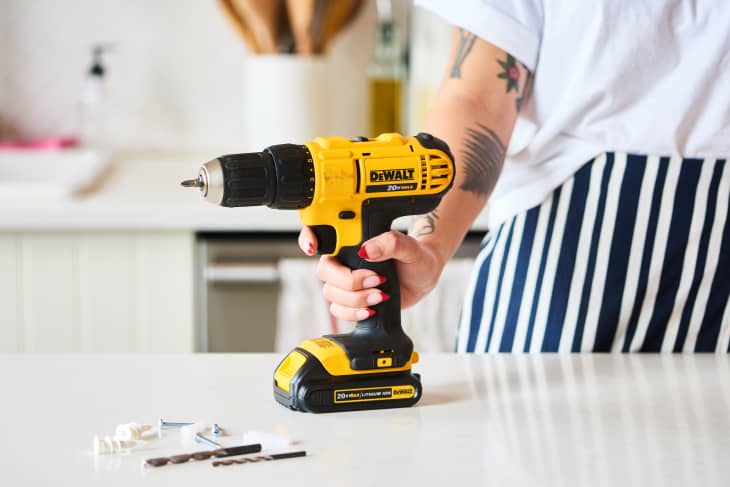5 Questions You Need to ask Yourself Before You Buy Power Tools in 2019

It’s convenient when your drill runs off the same battery as your sander. But the battery-compatibility ecosystem of power tools these days means buying a drill isn’t just buying a drill; you’re committing to an entire universe of tools.
Like any other investment, purchasing power tools requires some forethought — but figuring out where to begin with your home toolkit can be confusing. To get you started, Jessica Foster, Home Depot Associate Merchant of Power Tools and Accessories, suggests a few questions to ask yourself before you get to the power tool aisle.
How do you want to use your power tools?
Every power tool system has battery voltage options, and Foster says there’s a unique advantage for different voltages based on how you’re planning to use your tools. Before buying in to a system, ask yourself how you’ll be using your tools today and in the future. Are you an avid DIYer, a serious pro, or somewhere in between? Are you looking to cut the cord in more places than just tools — for example, do you want to go cordless in the garden and for in-home cleaning?
If you’re going to stick with common tasks around the house,, you can opt for lower-power tools. But if you want more versatility, go bigger. “The 12V tools deliver ample power for most common household jobs, and the 18V tools offer more power and flexibility to tackle big and small jobs,” says Foster. “Understanding your project needs, today and in the future, will help determine the battery platform you want to enter.”
Another tip: It’s important to remember batteries are not compatible across different brands or platforms/voltage, so choose the best one for you and stick with it.
How much money do you want to spend going forward?
Similarly, you may be down to pay for a more expensive drill at the get-go if you envision yourself using it frequently, but keep in mind that the price point you begin with is the price point you’ll be stuck with going forward. “Always look at the type of tools you are wanting to get, the platform they are a part of and the other tools that are in this platform and the price point you are wanting to stay in,” says Foster.
Each battery line also provides options for a customer that’s either brand new to power tools, expanding with new tools, and looking for ways to add additional batteries to their toolbox. “If you’re new to power tools, buying a combo kit instead of a bunch of individually priced tools is a good way to save money and start building a home workshop,” says Foster. “Bare Tools or Tools Only (without battery and charger) are also a more affordable way to expand your system, rather than continuing to buy kits once you’ve already built a foundation of tools and batteries.”
How niche to you want to get?
Luckily, there is a range of price points for power tools, depending on how specialized you plan to get with your home projects. Foster recommends Ryobi as an entry-level price point, Ridgid and DeWalt for more avid DIY-ers, and Makita and Milwaukee as higher-end price points for contractor-grade work, since they offer premium options, and more niche tools, like a drywall cut-out tool, a soldering tool, or even a high capacity grinder for demanding jobs.
How often do you want to charge your batteries?
One major appeal about power tool platforms is the ability to charge up prior to use, but depending on what tools and projects you’ll use, you may need more or less battery run-time. Foster says run-time is typically dependent on the application you’re executing on and the tool and battery you’re using, and a higher amp-hour battery (like a 6AH) will have longer run-times than lower amp-hour option (like a 3AH). You should also expect to get more run-time out of a 3AH battery on a drill than out of a 3AH battery on a circular saw (a more demanding application).
Typically, though, you won’t have to worry much about battery. “The great thing about the batteries and chargers we offer is that they’re smart batteries, meaning the charger will only ‘tap off’ the battery for any additional charge it needs when sitting on the charger,” Foster says.